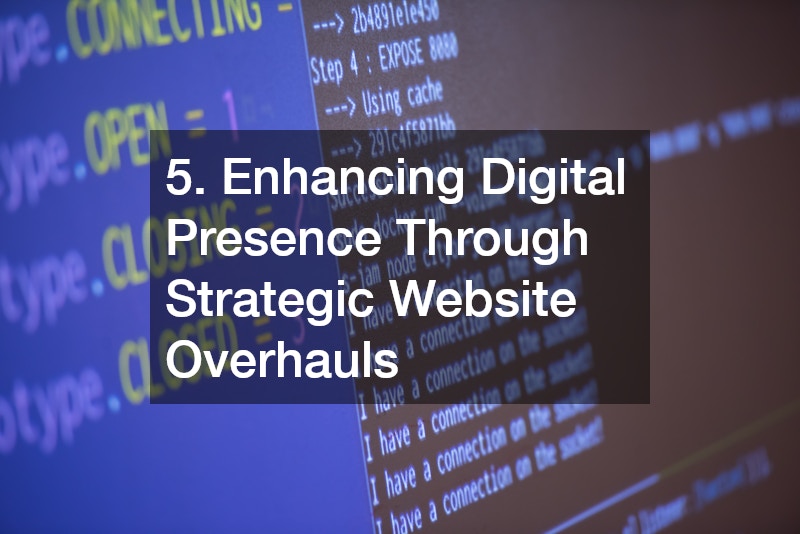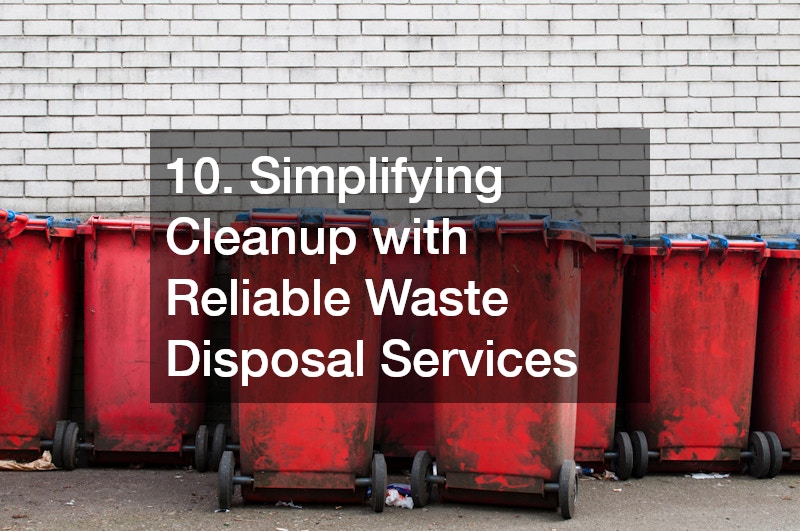In today’s fast-paced business world, staying stagnant is not an option. As the landscape rapidly evolves, it’s imperative for businesses to keep pace with emerging trends and anticipate shifts in the market. This demands a commitment to modernization, which can be a pivotal driver of continued relevance and success in competitive industries.
Modernization is a multifaceted concept that encapsulates upgrading physical infrastructure while simultaneously fostering innovation. Companies that strike the right balance between harnessing cutting-edge technology and reinforcing their core operational frameworks are better positioned to excel. This equilibrium not only boosts operational efficiency but also aligns with the growing demands for sustainability in business practices.
This article delves into key areas of business improvement, focusing on operational efficiency, sustainability, and technological advancement. By understanding the importance of industrial concrete contractors, embracing innovations like cold storage facilities, and leveraging digital transformations such as website redesign, businesses can unlock new avenues for growth. As you explore these dimensions, consider how they might individually and collectively lead to formidable business improvement solutions.
1. Building a Strong Foundation: The Role of High-Quality Construction Services

For any business aiming to scale operations successfully, reliable and durable infrastructure is a cornerstone. A robust foundation allows businesses to support increasing demand, expand their services, and improve operational efficiency. Collaborating with skilled industrial concrete contractors becomes essential to achieve customizable and resilient solutions tailored for various environments like warehouses, factories, and retail spaces.
Industrial concrete contractors bring industry-specific expertise, ensuring projects meet specific design and functional criteria. Their role extends beyond mere construction as they offer invaluable guidance on material selection and future-proofing business facilities. Partnering with such professionals enhances the scalability and durability of structures, providing a critical edge in operational readiness and planning.
Actionable steps in construction planning are crucial for seamless integration into business operations. Businesses should prioritize selecting contractors with experience in related industries, utilizing sustainable materials to mitigate environmental impact, and designing facilities with provisions for future expansion. These strategies form the backbone of comprehensive business improvement solutions that pave the way for enduring competitiveness.
2. Optimizing Temperature-Controlled Storage for Business Growth
Temperature-controlled storage solutions, like a cold storage facility, play a vital role in businesses that handle perishable goods, such as those in the food service, pharmaceutical, and logistics industries. These systems are integral to effective inventory management, ensuring products maintain their quality and safety standards. Businesses adopting adequate cold storage capabilities experience improved inventory efficiency and reduced wastage, propelling them toward market leadership.
Advanced cold storage solutions offer a competitive edge by optimizing product preservation and minimizing heat leakage. Integration of these systems into business operations mitigates risks associated with spoilage and enhances product reliability. Employing energy-efficient technologies within these facilities can further cut operational costs, underscoring the importance of energy conservation in modern business strategies.
To streamline these operations, businesses can take multiple actionable steps. Investing in energy-efficient systems is crucial for managing long-term costs, while the regular inspection and maintenance of storage equipment prevent unexpected losses. Collaborating with experts to tailor storage designs according to specific inventory requirements ensures the delivery of effective and lasting business improvement solutions.
3. Streamlining Hot Water Systems for Operational Efficiency
A reliable commercial gas water heater is vital for businesses such as restaurants, hotels, and healthcare facilities, where consistent hot water supply impacts guest experiences and operational processes. Upgrading to energy-efficient water heaters helps in reducing excessive energy consumption and minimizing environmental footprint, contributing significantly to sustainable business strategies.
A thoughtfully maintained commercial gas water heater guarantees continuity in operations and prevents delays caused by equipment malfunction. These systems, when upgraded or replaced with energy-efficient models, result in substantial cost savings, enhancing the overall financial health of a business. Consequently, interest in modern water heating solutions has surged as businesses aim to balance operational needs with sustainability goals.
To achieve maximum efficiency from water heating systems, businesses should prioritize regular maintenance to prolong the lifespan of the equipment. Comparing energy ratings and capacity before procurement provides insights into prospective savings and ensures alignment with business needs. Moreover, partnering with reputable suppliers for installation and service assures reliability and performance, further supporting comprehensive business improvement solutions.
4. Prioritizing Roof Maintenance and Upgrades for Long-Term Savings

Maintaining the integrity of business facilities hinges upon effective roof maintenance executed by professional commercial roofers. Roof neglect can lead to leaks and energy inefficiency, influencing indoor conditions and driving up operational costs. By addressing common roofing issues promptly, businesses can prevent costly repairs while optimizing climatic conditions within their premises.
Employing the expertise of commercial roofers ensures preventative measures are established, such as regular inspections and timely repairs. As part of modern business improvement solutions, investing in eco-friendly roofing materials further enhances energy efficiency. Materials like reflective roofs can significantly reduce cooling costs, providing substantial long-term savings.
Businesses can adopt several actionable measures to ensure their roofing systems perform optimally. Regular inspections help in catching any potential problems early, while investing in sustainable materials ensures environmental compliance and cost-effectiveness. Evaluating warranties and the expected lifespan of roofing materials before replacements safeguards against unforeseen expenses, reinforcing an organization’s commitment to durability and environmental accountability.
5. Enhancing Digital Presence Through Strategic Website Overhauls

As businesses embrace the digital age, a website redesign is often an imperative step in enhancing customer experience and brand engagement. A modern, well-designed website stands at the forefront of creating positive first impressions, influencing customer retention, and driving lead generation. In a competitive online environment, mobile optimization, fast loading times, and modern aesthetics are vital elements that keep businesses ahead of the curve.
Enhancing digital presence through website redesign encompasses several strategic enhancements, including incorporating SEO best practices for improved visibility and traffic. These transformations can significantly impact consumer perceptions and engagement metrics, making them a valuable component in comprehensive business improvement solutions. Well-executed redesign projects contribute to a seamless user experience, ultimately translating to increased conversions and business growth.
To fully leverage the potential of a website redesign, businesses should conduct user testing to pinpoint areas needing improvement. SEO best practices should be integrated during this process to capitalize on search engine rankings post-launch. Utilizing analytics tools further enables businesses to measure the success of implemented changes, leading to data-driven decision-making and sustained digital competitiveness.
6. Safeguarding Operations with Efficient Waste Management Systems
Effective waste management is a critical component of sustainable business operations, especially in locations where businesses rely on commercial septic tank services. For businesses in rural areas or those with specific waste disposal needs, maintaining efficient waste management systems is critical to avoiding operational disruptions and legal implications. By focusing on environmentally conscious waste disposal practices, organizations can achieve compliance and minimal environmental impact.
The risks associated with neglecting septic systems include not only hefty legal penalties but also significantly disrupting business operations. Regular maintenance and inspections of these systems are essential in avoiding costly repairs and unexpected shutdowns. Implementing strategic waste management solutions raises efficiency and supports broader business improvement initiatives aimed at enhancing sustainability.
To ensure proper waste management, businesses must schedule routine inspections and pump-outs as precautionary measures. Training staff on appropriate disposal practices reinforces compliance with industry standards. Collaborating with licensed service providers will offer expert insights into maintaining these systems, promoting effective business improvement solutions aligned with regulatory standards.
7. Leveraging Professional Coaching for Strategic Growth

Business development coaches offer invaluable expertise in fostering innovation and enhancing leadership capabilities within an organization. Engaging with professional coaches can lead to remarkable transformations in strategic thinking, employee engagement, and overall business performance. By drawing on expert guidance, businesses can unlock potential growth avenues, sustaining long-term competitive edges in their respective markets.
Success stories of businesses leveraging coaching are abound, demonstrating the transformative power of strategic mentorship. Coaches enable organizations to navigate challenges effectively and embrace innovative solutions that propel them ahead of competitors. By identifying areas where external expertise can be valuable, businesses position themselves to maximize the benefits of this tailored improvement approach.
To fully capitalize on the benefits of professional coaching, businesses should identify key areas where guidance could have the most impact, such as marketing or operations. Opting for coaches with proven industry experience ensures relevant insights and constructive feedback. Setting measurable goals for coaching sessions will allow businesses to evaluate progress and make informed decisions about future strategies, forming an integral part of comprehensive business improvement solutions.
8. Adopting Sustainable Practices Through Electronics Recycling
Sustainability initiatives are gaining significant momentum in the business world, with electronics recycling emerging as a cornerstone of corporate environmental responsibility. Businesses that actively pursue electronics recycling not only contribute to ecological preservation but also adhere to stringent environmental regulations. Recycling outdated electronics reduces the costs associated with e-waste disposal and protects sensitive corporate data from potential breaches.
The implementation of robust recycling programs underscores a company’s commitment to sustainability, appealing to environmentally conscious stakeholders and consumers. These initiatives form an essential element of progressive business improvement solutions, enabling organizations to lead by example in sustainable practices. The overarching advantages of effective recycling programs extend beyond environmental benefits, influencing cost savings and reputational growth.
For businesses to successfully incorporate electronics recycling into their operations, creating a comprehensive inventory of outdated devices is a critical first step. Forming partnerships with certified e-waste recycling companies secures compliance and efficiency in disposal practices. Educating staff on the importance of recycling and sustainability initiatives fosters a culture of environmental awareness within organizations, propelling them towards ethical business improvement solutions.
9. Enhancing Customer Experience with Advanced Ice-Making Solutions
In sectors such as hospitality, healthcare, and food service, an efficient commercial ice machine is a non-negotiable asset. These machines significantly affect customer experiences by ensuring a steady supply of high-quality ice, whether for culinary use or therapeutic applications. Modern ice machines deliver operational efficiencies and are designed to minimize energy consumption while maximizing output, providing businesses with both performance enhancements and cost savings.
Advanced ice-making solutions set businesses apart by offering features that enhance hygiene and reliability. Machines equipped with filtration systems ensure ice quality and maintain high safety standards, meeting regulatory requirements. As part of an integrated approach to business improvement, investing in reliable ice-making machinery affirms an organization’s commitment to seamless service provision and quality assurance.
Choosing the right ice machine requires a thorough understanding of energy efficiency and ice production capacity. Regular maintenance of these machines is vital to prevent disruptions during peak demand periods. By evaluating advanced models prior to purchase, businesses can optimize their ice production processes, achieving both operational effectiveness and contributing to overarching business improvement solutions.
10. Simplifying Cleanup with Reliable Waste Disposal Services

Efficient waste management practices are central to maintaining operational effectiveness, especially during periods of increased output, such as renovations or events. Utilizing dumpster rentals presents a flexible and scalable waste disposal solution, addressing varying business needs without compromising on efficiency. Reliable disposal services reduce the operational burden of waste management, allowing businesses to focus on core activities.
Scalable waste solutions, such as customizable dumpster rentals, ensure that businesses are well-equipped to handle waste efficiently. This approach minimizes the logistical challenges associated with waste disposal, supporting seamless operations. By simplifying cleanup processes, businesses achieve greater efficiency and compliance, which are critical components of successful business improvement solutions.
To streamline waste disposal, selecting the appropriate dumpster size is crucial to avoid excessive costs and inefficiencies. Scheduling pickups aligned with waste volume and types maintains optimal waste flow within an organization. Ensuring compliance with local disposal regulations further demonstrates a business’s commitment to responsible waste management, contributing to holistic business improvement strategies.
Taking Action to Modernize Your Business
The myriad facets of modernization, from infrastructure enhancements to innovative technology adoption, are pivotal in maintaining business competitiveness. Through strategic investments in key areas such as physical infrastructure, digital transformations, and sustainable practices, businesses can bolster operational efficiencies and secure long-term viability. These proactive measures form the foundation of robust business improvement solutions, promoting sustained growth and market relevance.
Assessing current operational capabilities and identifying areas for improvement is fundamental for businesses aiming to stay ahead. By undertaking a comprehensive evaluation of existing practices and potential innovations, organizations can uncover opportunities for refinement and expansion. Embracing strategic partnerships with industry professionals further augments these efforts, ensuring alignment with evolving business goals.
As a call to action, businesses should prioritize modernization initiatives that align with their long-term objectives and sustainability commitments. Engaging experts across various fields provides valuable insights and support, facilitating impactful transformations. By actively embracing and investing in modernization, businesses secure their competitive edge, establishing themselves as agile players in the ever-evolving business landscape.

